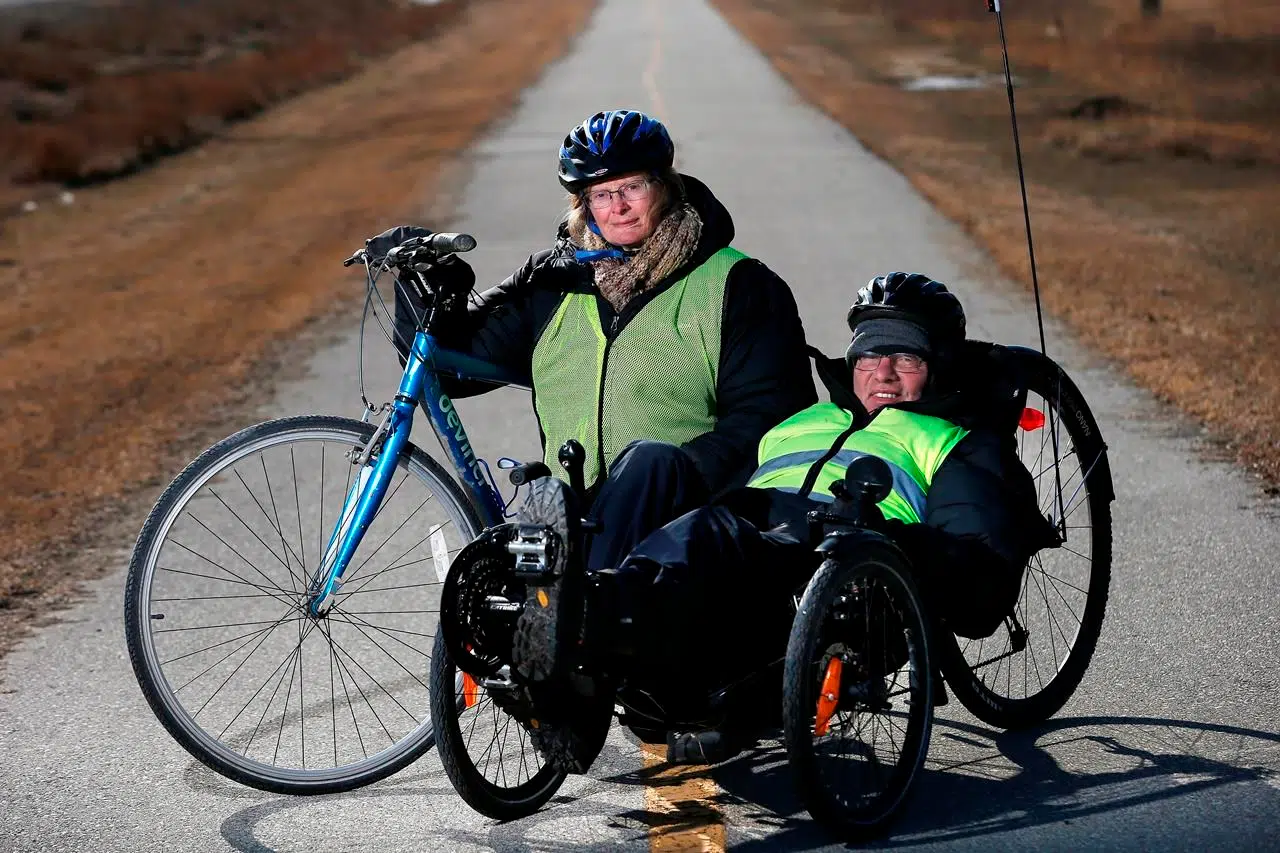
Wanted: Caregiver to join cycling adventure to tackle Parkinson’s symptoms
WINNIPEG — A Winnipeg couple planning the trip of a lifetime realized they would need some help along the way, so they put up an online advertisement looking for a very specific person — a qualified caregiver with a serious love for cycling.
Jill Oakes, 66, sat down at her computer earlier this week and thought about how to best explain the job: A four-month-long bicycle trip with her 76-year-old husband Rick Riewe, a retired senior biologist with Parkinson’s disease.
Oakes typed into the Kijiji ad, “Duties include: helping wife monitoring external catheter or Depends; taking care of personal hygiene and dressing; keeping a watch out for safety” and the caregiver should have experience working with seniors, a health-care aid certificate, love cycling and have experience camping.
Soon, a few emails started to trickle in.


